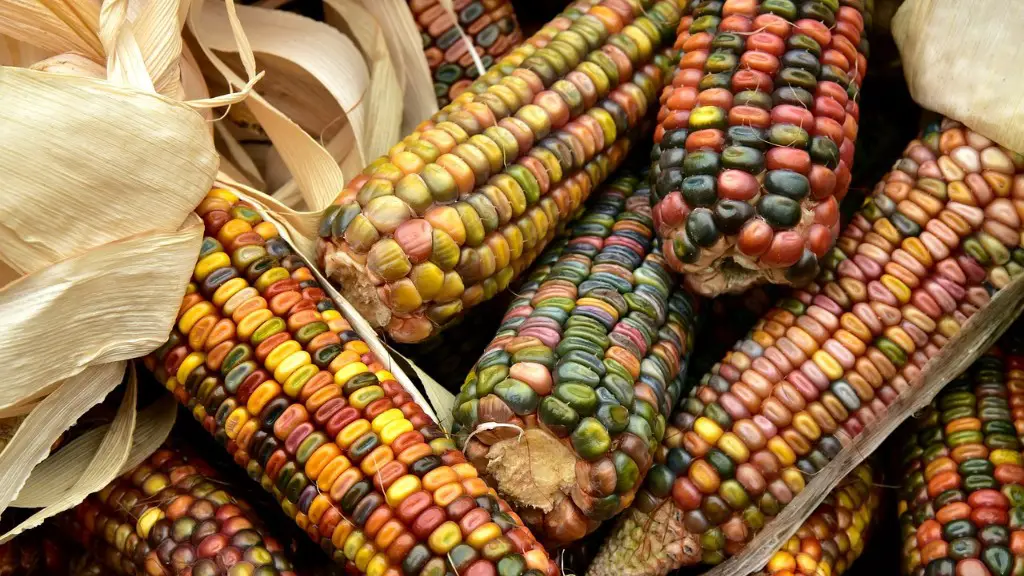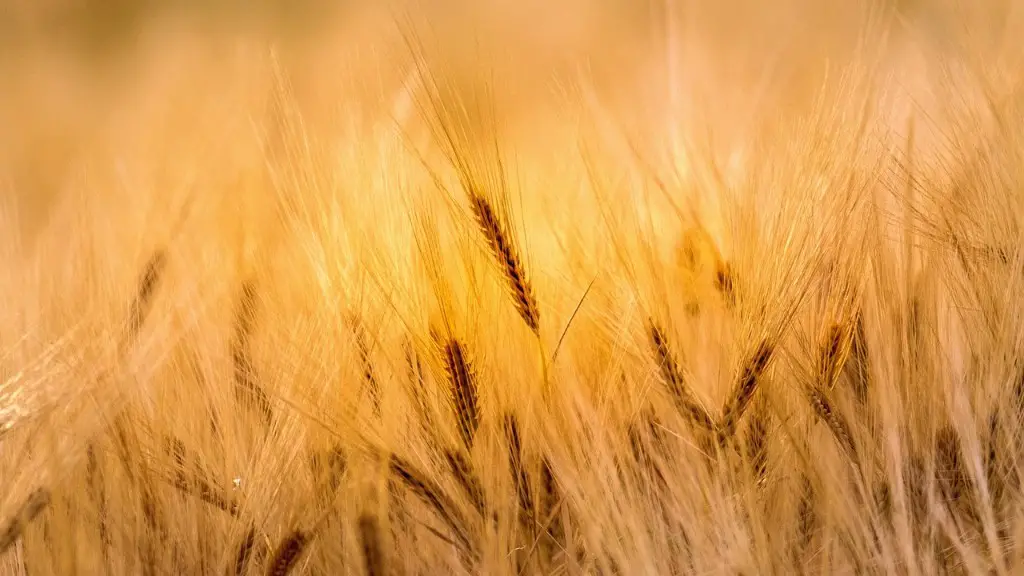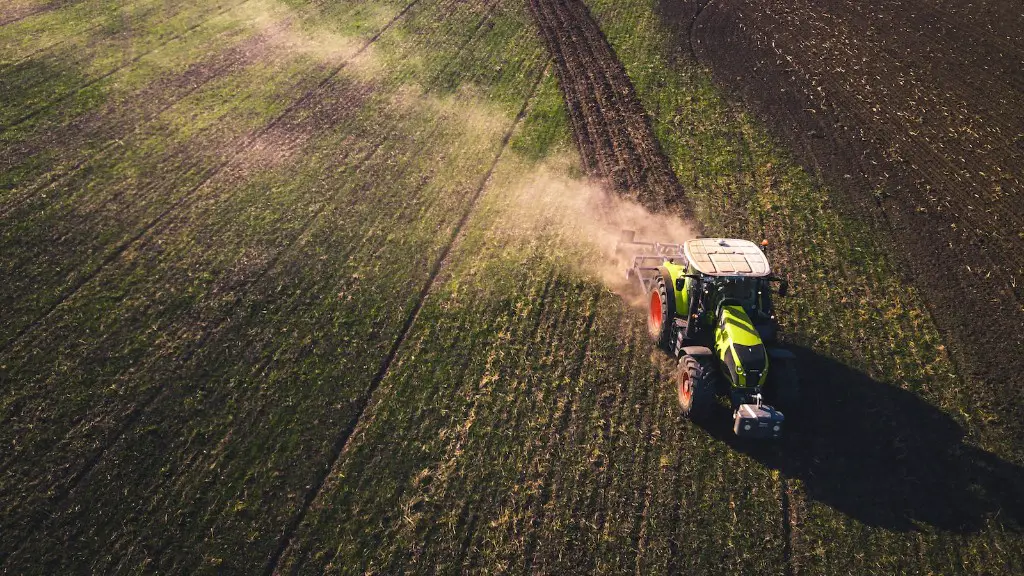Weeds are a problem in agriculture because they compete with crops for space, sunlight, water, and nutrients. They can also harbor pests and diseases that can damage crops. There are several ways to control weeds, including mechanical, chemical, and biological methods.
Weeds can be controlled in agriculture through a variety of methods, including mechanical, chemical, and biological control.
What are the 4 methods of controlling weeds?
One of the most effective ways to control weeds is through mechanical means. This can include pulling, digging, disking, plowing, and mowing. The success of these methods is dependent on the life cycle of the target weed species. For example, annual weeds are best controlled before they produce seeds, while perennial weeds are best controlled when they are actively growing.
Crop rotation is an effective method of controlling weeds by planting different crops in succession on the same field. This helps to break up many pest cycles including insects, diseases and weeds. By rotating crops, farmers can help to reduce the amount of pesticides and herbicides needed to control pests and weeds, and can also improve soil health.
What is the #1 method of controlling weeds in crops
Hand hoeing and pulling are the earliest (historically) and simplest types of weed control. Still a major weed control method for about 70% of the world’s farmers (primarily in less industrialized countries), it kills by severing, dislodging, or burying plants and seeds. All tillage operations will help to control weeds.
Mowing your lawn can decelerate seed production and limit weed growth, especially before the weed flowers. Consider using this method alongside herbicides application to get rid of weeds effectively.
What are the 3 solutions that farmers do to control weeds?
Cultivation, herbicides, and biological control are all effective methods for killing weeds in target areas. Fallow or pre-sowing cultivation can kill many weeds, including herbicide-resistant populations. Herbicides continue to play a vital role in integrated weed management. Weed control in wide-row cropping can be achieved by spot spraying with herbicides. Biological control, such as using predatory insects or fungi, is another effective method for weed control.
Water is one of the best control methods for weeds. Many weeds cannot germinate or grow when the ground is flooded. To minimize weed growth, maintain a water level of 2-5 cm in the field.
How do organic farmers deal with weeds?
There are a few different methods that can be used to get rid of weeds, but the most reliable method is to dig out the tap root. Hoeing is also an effective method, especially when the weeds are just germinating and are still small. This involves using a blade-like implement to cultivate the soil, usually for the purpose of eradicating weeds.
Crop rotation is the key to organic weed management. This technique keeps weed communities in check by planting different crops and rotating them on a regular basis. This helps to improve soil fertility and economic diversity.
What do farmers remove weeds
Weeds are a serious problem for farmers as they compete with the crop for water, sunlight and nutrients. This results in lower yields and decreased crop efficiency. Weeds also make it difficult for farmers to control the environment in their fields, as they can spread quickly and choke out the crop. In order to prevent these problems, it is important to control the weed population in your field and to keep them from establishing themselves.
Herbicides are occasionally the best and most productive approach to weed the board. A few herbicides are set up so as not to hurt the encompassing plants of the weed. Compound control can be a powerful method to control weeds.
What are 6 methods for managing weeds?
Weed management is the process of preventing and controlling the growth and spread of weeds. Weeds can compete with crops for space, water, and nutrients, and can harbour pests and diseases that can damage crops. Therefore, effective weed management is essential to successful crop production.
There are a number of different methods that can be used to manage weeds, including prevention, cultivation, mowing, flaming, hand-removal, mulching, soil solarization, and herbicide application.
Mulches are an easy and effective way to control annual weeds in the garden. They can also suppress perennial weeds.
What are 3 ways of removing weeds
Different methods of weed control are as follows:
1. Tilling: In this method, weeds are removed by uprooting or killing them before sowing the seeds.
2. Manual labour: In this method, weeds are removed by uprooting them which are close to the ground, from time to time with the help of khurpi.
3. Use of weedicides: Weedicide is a chemical used to remove weeds from the field.
Mulching over weeds can be effective in smothering them, but you need to make sure the mulch layer is thick enough. Using a layer of cardboard or newspaper (about 10 sheets per layer) can help prevent weeds from emerging. Lay the cardboard or newspaper directly on top of the weeds, then put down a nice thick layer of mulch on top.
How do farmers control weeds without chemicals?
Weeds are a major problem for farmers and can severely reduce crop yields. Therefore, it is important to control them before they set seed and spread. One way to do this is to hoe, pull, or cut them. Another option is to mow them on an interval that allows weeds to re-grow between mowing. This will eventually kill or reduce the number of some weeds.
Herbicide2, 4-Dichlorophenoxyacetic acid, more commonly known as 2, 4-D, is a systematic herbicide which selectively kills most broad leaf weeds. It is commonly used by farmers to get rid of weeds. 2, 4-D works by mimicking the plant hormone auxin, which tricks the weed into growing at an accelerated rate. This eventually leads to the weed’s death.
Which is the best method of controlling weeds in a large farm
Weeds can be a nuisance in the garden, but there are some simple and effective ways to control them. One of the best ways to prevent them from growing in the first place is to use various forms of soil cover. This can be anything from mulch to landscape fabric. These methods are cheap and will avoid disturbing the soil. If you do have weeds that pop up, you can kill them with a hand hoe or machete, or with herbicides. There are various ways to control weeds, so choose the method that works best for you and your garden.
Weeds are a major problem for farmers because they can take up valuable resources like water and nutrients very quickly. This can reduce the overall yield that can be produced from a crop. Additionally, weeds have the ability to rapidly adapt to stresses like drought or changes in temperature. This makes them difficult to control and remove.
Conclusion
Weeds are generally controlled in agriculture through a combination of cultural, mechanical, and chemical methods. Cultural methods include crop rotation, tillage, and selecting weed-free seed. Mechanical methods include hand-pulling, hoeing, and mowing. Chemical methods include the use of herbicides.
If you want to learn how to control weeds in agriculture, you should start by understanding what types of weeds you have in your fields. You can then develop a management plan that includes techniques like Rotating crops, Hand weeding, Mulching, and using herbicides. With a little bit of knowledge and planning, you can keep your fields clear of weeds and produce a great crop.




